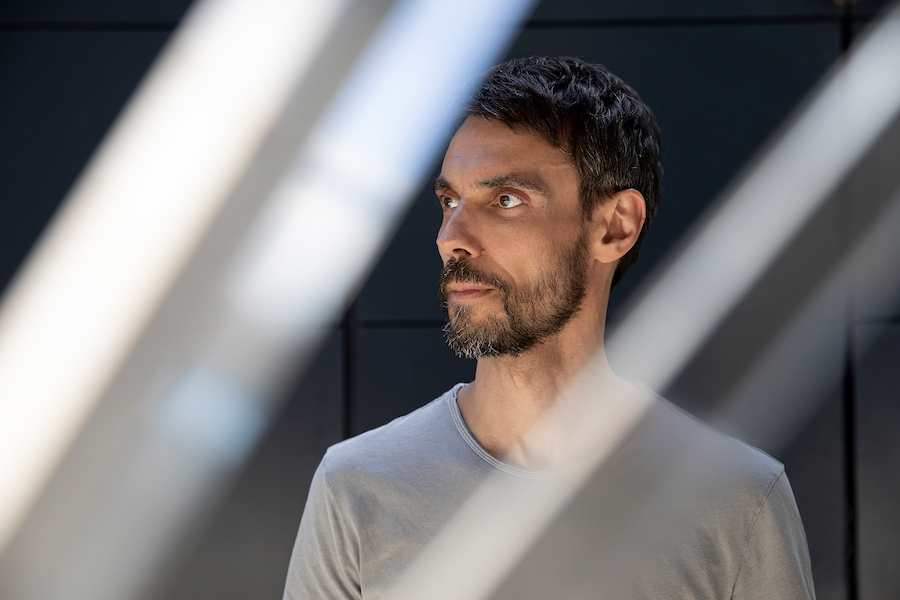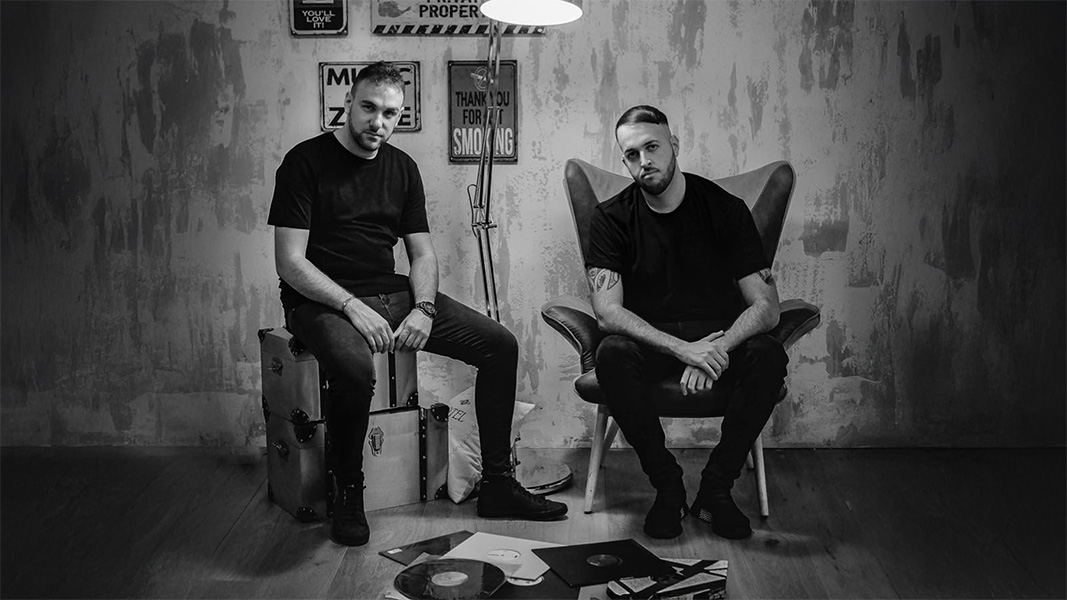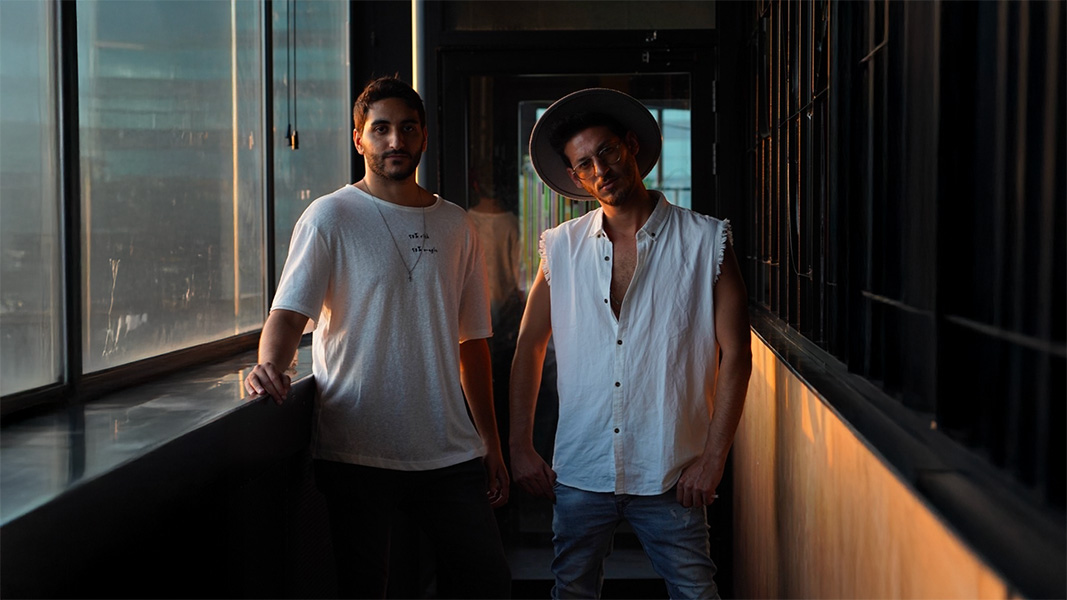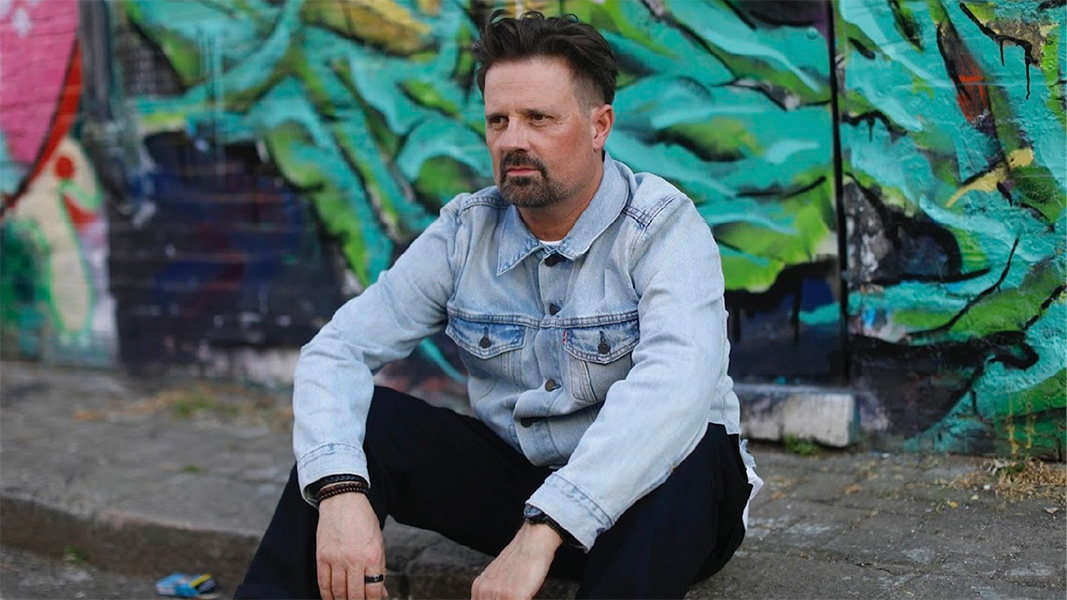Steve Bug is one of electronic music’s true originals. His relentless commitment to quality – both in his own work and in the many producers he has championed – has made him one of the world’s most revered artists and curators, and along with his label Poker Flat has made a sizeable contribution to building the European house and techno scene as we know it.
A dedicated, energetic and constantly innovative talent, Resident Advisor once called Steve Bug the “gentleman of techno” referring to his sense of duty and dependability as one of the world’s most renowned DJs and producers. That same professionalism that means he’s hardly ever missed a DJ gig is evident in his work as a composer, producer and owner of the Poker Flat Recordings label: a label whose influence on house and techno cannot be overstated. Every step he takes is well considered, but always tempered with his own fine sense of humour and innate love for his craft.
Having grown up in Germany’s techno and acid-house heyday, Steve Bug’s love for a perfect groove is as apparent now as it was back then. His DJ skills and a keen, innovative ear led him not down the typical path of the early nineties trance and harder dance scene, but instead towards a fresher, hybrid sound–merging stripped deep house, tweaked out acid and more minimal forms of techno and electronic music.
Although dedicated to his own labels – first and foremost the aforementioned Poker Flat – Steve’s talents have naturally attracted the attention of other imprints. Bedrock, Knee Deep In Sound, Minus, Cocoon and Defected are just some of the labels that have championed original tracks and remixes.
Steve is also one of the few electronic artists capable of putting out a ‘proper’ album. Having released no fewer than five full length LPs over the last two decades, his latest Paradise Sold alongside Langenberg – a full ten-track album of exquisitely crafted house music on Poker Flat –was released in 2018 to critical acclaim, and described as “elegantly euphoric” by Mixmag, while a remix package of Paradise Sold with new interpretations from Rodriguez Jr., Frankey & Sandrino, Cassy and Virginia was supported by DJs and tastemaker publications across the board.
In 2019 Poker Flat celebrated its 20th anniversary, marking this impressive milestone with a series of remixes of some of its most iconic releases from an incredible array of talented artists including Tim Engelhardt, Michael Meyer, Catz ’n Dogz, Acid Pauli, Guti, Butch, Matthias Kaden and Francois K. 2019 also saw the launch of a new sublabel for Poker Flat, Sublease Music, the first release on which was an EP from Ibiza resident Kellie Allen La Vie En Rose, followed by further releases from Manik, Buraq and Arkady Antsyrev.
Sublease was set up to champion deeper, more club-ready, tracky cuts from exceptionally talented producers that deserve a platform for people to hear them. This was the ethos with which Steve originally set up Poker Flat, so it seems fitting that as he celebrates 20 years of Poker Flat it’s time for Sublease Music to bring a different sound to the world.
Steve continues to tour relentlessly, maintaining a loyal following across Europe, Asia, North and South America and Australia. More than two decades into his storied career, Steve Bug still remains a singularly talented artist. Long may his reign continue.
WWD: Hi Steve, congratulation on 20 years of Poker Flat! What do you think the Steve of two decades ago would think of reaching this milestone?
He’d think: wow that went quick. Haha!
WWD: How do you think the label has evolved over the last 20 years? And are there any things that have remained exactly the same?
Coming from being a vinyl label, that would release only albums on CDs as well, we had to grow into the digital age of piracy, digital stores and now to streaming: something all labels coming from back then had to achieve. Musically, I personally think we had a few peaks over the years, but right now I am feeling, that this is a great moment. We have so many exiting artists releasing great music with us. Of course some people will always say the early days were the best, but imagine if we had put Poker Flat to sleep ten years ago, and all the music we released in the past let’s say 3-5 years would have been released on a new label. What would people think of the music then? Even though I think we stayed true to our roots and Poker Flat does have a sound of its own, I know that the sound has changed, but I don’t want to live on the past. I don’t want to produce tracks that sound like back then.
In general music does sound different today. And even if some artists produce tracks that sound like the early nineties today, this music never will be fresh. I think, but this maybe just in my head, we managed to stay true to our sound, but we kept evolving at the same time. And if there’s something that has remained the same it’s that the music we sign has to catch me and make me wanna dance, and I do have to wanna play it out loud. Also we still try to build longterm relationships with most of our artists.
WWD: How have you been celebrating the anniversary?
We asked some of our favorite artists to remix their favorite track from the back catalogue. So far we have mixes by Butch, Tim Engelhardt, Matthias Kaden and Michael Mayer, there are more in the making by Catz ’n Dogz, Acid Pauli, and many others. As well we held some label parties in some of our favorite clubs, and there’s more to come.
WWD: What have been your personal highlights from the last 20 years of the label?
That’s difficult to answer, since I very much enjoyed everything that happened. But surely there are a few tracks, like John Tejada’s Sweat, Martin Landsky’s 1000 Miles, Berkson & What’s Ghost, Guido Schneider’s Removed and others that stand out for me. The Trentemoller album was definitely a highlight as well. And some of our label parties over the years have been incredible, not only because it is great to get to play and hang out with the crew, but also because the atmosphere was simply amazing.
WWD: And any particular lowpoints you’re glad you managed to overcome?
Not that I can think of: as I said I am basically enjoying the whole ride, with all of its highs and lows.
WWD: You’ve also recently launched a new label, why did you decide the time was right for another project, and what can we expect from it over the coming months and years?
Well, lately I find myself playing a lot of the modern house, minimal deep tech stuff, if we’re talking in digital shop filing terms. And through charting this kinda music, I got in touch with a lot of producers that produce this kind of sound. And they started sending demos. At first I thought I want to release them on Poker Flat, but after having a chat with my label partner Tobias, we decided it might be smarter to start a new label instead. Sublease Music number 3 by Buraq is out end November and will be followed by a two tracker by Steve Kelly next year. We will definitely stay on the DJ friendly tip, with tracks that work great in the mix. But the artist roaster is growing fast, and I am confident that the label will find its place in the electronic music world.
WWD: You’ve produced so many records in your career, how do you push yourself to find and explore new ideas with your music?
I don’t know, it’s basically just happening. I breathe music, even though I don’t have any musical education, I always loved music and since I started deejaying I wanted to find out how this music was produced. Soon after I found myself buying gear and start producing on my own, ideas keep coming since. Sometimes simply by playing around with sounds or drums. There is a driving force in me that brings me back to the studio and gets me to write music, sometimes only for the moment, just for myself in that particular moment. Music doesn’t always have to be finished, and be released. Sometimes just enjoying a loop for hours / days is good enough for me. I don’t write to sell it, I write music because I have to. And I probably always will.
WWD: Do you ever get demotivated in the studio, and if so how do you get around that feeling?
Of course I do, just like everybody else does every now and then. If it’s just a day, or a week, it’s easy to get around, stay away from the studio, and do something else, that hopefully inspires you. If you’re still demotivated after a couple of weeks, maybe try getting a new plug in, a little tool, or if the budget allows a new piece of hardware. You can also try to change something in your set up, and/or your workflow. This usually works to motivate you enough. In general I think it’s best not to try to hard and to stay away from the studio when you’re not really motivated. It is important to have something else in life that gets you going apart from the music, so that you’re not too affected by dissatisfaction in the studio.
WWD: I’ve read a few Tweets of yours where you seem to be expressing a certain amount of dissatisfaction with the way some DJs do things just for social media exposure of followers… do you feel that the internet in general and social media specifically has changed the industry for the worse?
It definitely has, in the beginning it was great to get the music out to people that never had the chance to go to a record store for example. Or being connected to fans that never heard you deejaying, simply because they live too far away from major cities. For artists it was also great to connect with each other, and somehow that all still is a part of the internet and social media. But then you have so many social media phenomena. For years, many promoters book artists by the amount of likes and followers they have, not by the quality of their work. There are artists who spend a lot of money on social media agencies to become or stay popular, and it does work, and in most cases it does pay back. Artists became more of a product, something that was always there in pop culture, but nowadays electronic music doesn’t differ from the mainstream anymore, it actually became mainstream.
The top deejays are making so much money, they are flying around in private jets, taking photographers on their trips to make sure they always look great, and that they have enough material to feed the socials. Social media became about showing off: there seems to be no shame in posting you’re flying business class, first class or even private jets, for example, it actually became a thing. Even playing at certain clubs or festivals is something like a collectors item that artists need to show the world nowadays. And then there are all these posts of deejays playing in front of huge crowds… it almost seems like we arrived at the high glossy version of what this culture used to be. But we didn’t, social media is painting a false picture. It only shows the very commercial side of it. There is still another side to all this, it is just not so visual on the socials.
Another problem is, that even the magazines nowadays keep on writing articles about the same artists over and over again, probably because they are also on the hunt for more likes and followers. Even certain deejays and promoters would only post pics with artists that have at least the same reach, showing yourself with someone with less likes seems to be uncool. It became so hard for new talents to get heard, if none of the few top labels take you on and help you build up your profile. It also seems that people don’t give much credit to the ones that are contributing to the scene since many years, by running clubs, or labels, by producing music, or by being amazing deejays, if they are not a part of the elite.
Talking about the elite, many fashionable brands are interested in collaborating with big name deejays, because they have so much reach. Fashion was somehow always a part of clubbing, but this all seems to be a bit out of hand to me. So people please remember, that in addition to the few artists you see over and over again on socials, there are many hardworking people in the business who also deserve some credit, and who you should support as well.
WWD: You also seem to be an advocate of changing lifestyle in order to cause less harm to the planet, is that a challenging thing to do as a touring DJ?
It is hard to accomplish these things when on tour: first of all, I need to get on an airplane to get to work most of the times. I do pay compensation for most of my flights, but somehow it feels this is more to sooth myself than really offsetting for the fights. Buying food at airports, or at local stores that you’re taking on your journey comes wrapped in plastic most of the times. Especially in airports – unless you’re in California – the products you can buy are definitely not bio, local, nor organic. So you don’t have much choice. I don’t have enough time to pre-cook meals to take on tour with. And sometimes you wouldn’t be allowed to take this into the country you’re traveling to.
But apart from touring changing your lifestyle is challenging, and it’s not easy. 20 years ago I sold my car, mostly I ride my bike, sometimes I use public transportation. If I need a car I use car sharing, lately mostly electric cars. But I still drive cars and take taxis. For many years I buy mostly bio food, I try to eat local and seasonal, I rarely eat meat or fish. I try not to order things online. In general I try to reduce consumption. But we’re trained to always buy the newest model of a phone, a computer and so on. It’s not easy to overcome this behavior. Also with accelerating software updates you do need a new computer every few years, even though your old one still looks fine and works great. But it’s not fast enough to operate the updates anymore.
I completely avoid fast fashion, it creates so much waste and the co2 imprint is terrible. In general it’s hard to see that we keep on producing things that no one will buy in the end, and that will be destroyed brand-new. Overproduction is really hard to understand, especially knowing what’s going on with the world. I try to buy clothes that I will be wearing for a very long time, instead of buying something that is hip just for a second. Actually, the same thing applies when shopping for new music for the label: longevity is important to me.
WWD: For anyone wanting to emulate your success with Poker Flat, what should they definitely do, and definitely not do?
Have a vision, stay true to yourself, don’t jump on every bandwagon, build an artist family to grow with. Never stop believing in your vision. Don’t sell out. Make adjustments to fit new technologies, and/or markets. Be patient.
WWD: Finally, what else do you have coming up that we should be looking out for?
Last week Moon Harbour released a track that I co-produced with my mate Matthias Tanzmann for his upcoming Album. In December I have a release with Tim Engelhardt on LNOE. And I have plenty of stuff lined up for next year, that I can’t talk about yet. I had a very productive year 🙂
WWD: Thanks Steve, here’s to the next 20 years!
Thanks, cheers 🙂






